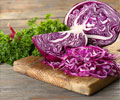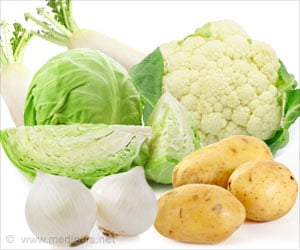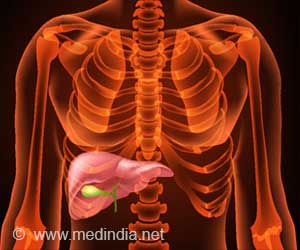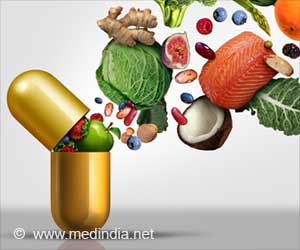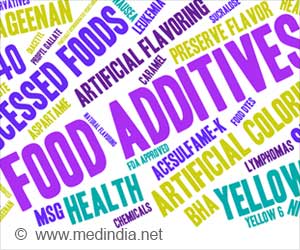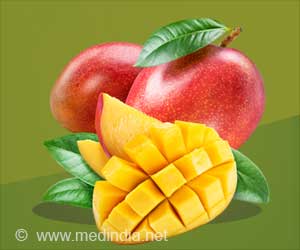- Cabbage is highly nutritious and can promote better systemic health
- Cabbage is better eaten raw and can be consumed even at night
- Cabbage is a low-calorie vegetable and can aid in keeping the glycemic index low
Benefits of Cabbage
Impact of Cabbage on Cancer
Sulforaphane, found in cabbage, has anti-cancer effects. According to one study of women, those who ate the most cabbage and its Cruciferous cousins, such as broccoli and Brussels sprouts, had a 45 percent lower risk of breast cancer than those who ate the least (1✔ ✔Trusted Source
The Epigenetic Impact of Cruciferous Vegetables on Cancer Prevention
Go to source). Cabbage may also help prevent lung cancer. Because of the fermentation process, fermented cabbage, often known as Sauerkraut, may have even higher levels of anticancer chemicals. However, due to the high sodium level of Sauerkraut, it should be rinsed before boiling.
Cabbage can aid Blood Sugar Regulation
The cabbage has anti-hyperglycemic and antioxidant properties that make it an effective natural diabetes treatment. Both properties work as natural diabetic treatments by lowering blood sugar levels.
Don’t forget to add cabbage to your grocery list, as it is the natural way to treat diabetes, and if you are lucky enough, it can also help get you off your medications. Yes, cabbage is a powerful weapon to treat diabetes, and it can do wonders to handle the situation (2✔ ✔Trusted Source
Antihyperglycemic, antihyperlipidemic and antioxidant activity of phenolic rich extract of Brassica oleraceae var gongylodes on streptozotocin induced Wistar rats
Go to source).
Cabbage-Fit for a Healthy Heart
Cabbage is thought to be the finest vegetable for enhancing heart health. Anthocyanin, a chemical present in red cabbage, helps to lessen the risk of cardiovascular disease. Even consuming a small amount of flavonoid-rich food lowers the chance of dying from cardiovascular disease (3✔ ✔Trusted Source
Cardiovascular Health Benefits of Specific Vegetable Types: A Narrative Review
Go to source).
Cabbage-Enhances Renal Function
When blood sugar levels rise, the kidney tends to eliminate the excess sugar through urine. As a result, there is an excessive loss of fluids in the body, resulting in dehydration and a slew of other issues.
Dehydration causes the blood to thicken, blood sugar levels to rise, and the kidneys to fail to compensate. Diabetic people are at increased risk of renal failure for these reasons (4✔ ✔Trusted Source
Risk of Kidney Stones: Influence of Dietary Factors, Dietary Patterns, and Vegetarian-Vegan Diets
Go to source).
Cabbage Aids with Weight Loss
Because cabbage contains few calories, it is an excellent choice for individuals with diabetes.
Cabbage has a high fiber level, which aids digestion and the removal of toxins from the body (5✔ ✔Trusted Source
Red Cabbage Microgreens Lower Circulating Low-Density Lipoprotein (LDL), Liver Cholesterol, and Inflammatory Cytokines in Mice Fed a High-Fat Diet
Go to source).
Cabbage - A Calcium Option you Should Consider
For many years, conventional knowledge held that dairy was the king of calcium-rich foods. While milk, cheese, and yogurt are undeniably high in this vital mineral, they are not the only game in town. Consider the simple and common cabbage. This cruciferous vegetable, which is the main ingredient in the classic picnic coleslaw, turns out to be a calcium powerhouse. It also contains a variety of other minerals that are necessary for our health (6✔ ✔Trusted Source
Calcium and Haemoglobin: the Influence of a Cabbage Diet on the Haemoglobin of the Rabbit
Go to source).
These are all benefits of eating cabbage for diabetics and non-diabetics alike. If you increase your intake of cabbage in your diet, it can do wonders for your health.
Is Cabbage Better for you Cooked or Raw?
Cabbage is healthier and more nutritious when consumed raw, as cooking destroys many of its nutritional benefits.Many vegetables, including cabbage, lose enzymes that aid in adequate nutrient absorption when heated; on the other hand, eating them raw can enhance digestion (7✔ ✔Trusted Source
Effect of different cooking methods on the content of vitamins and true retention in selected vegetables
Go to source).
It is recommended that you try using raw, chopped cabbage as a method to add texture and crunch to salads or sandwiches.
Just don’t smother it in dressing or mayonnaise, or the nutritious benefits will be negated!
What Happens if you eat Cabbage Every Day?
Cabbage is a cruciferous vegetable that has been utilized for ages in Asian medicine. It is a member of the Brassica family and is also known as bok choy.Cabbage contains vitamin K, which is necessary for blood clotting and can help prevent internal bleeding. Cauliflower also contains vitamin C, folic acid (vitamin B), manganese, and chromium.
Cabbage has been shown to protect postmenopausal women from breast cancer and other cancers such as prostate cancer.
How much Cabbage is too Much Cabbage
Consuming cabbage regularly will provide you with many of these necessary elements, but consuming too much can have negative consequences.It may induce gastrointestinal discomfort.
If you have a medical issue, such as heartburn or ulcers, eating cabbage may aggravate your symptoms, so seek competent medical advice before making any drastic dietary changes.
Can I eat Cabbage Late at Night?
Some of the nutritional advantages of eating cabbage have already been discussed, but what about the hour of the day? Is it important to eat cabbage at night?In a nutshell, no.
It makes no difference when you consume cabbage as long as you eat a healthy, balanced diet and get the correct combination of nutrients from other vegetables as well.
The time of day won’t make much of a difference, but, if possible, avoid eating or drinking within an hour or two before bedtime because you don’t want to be lying in bed with a full stomach.
It’s also important to be aware of the potential gas buildup that might occur as a result of eating cabbage.
So, hurry up and add cabbage to your shopping list to boost your health.
References:
- The Epigenetic Impact of Cruciferous Vegetables on Cancer Prevention - (https://pubmed.ncbi.nlm.nih.gov/25774338/)
- Antihyperglycemic, antihyperlipidemic and antioxidant activity of phenolic rich extract of Brassica oleraceae var gongylodes on streptozotocin induced Wistar rats - (https://pubmed.ncbi.nlm.nih.gov/26020019/)
- Cardiovascular Health Benefits of Specific Vegetable Types: A Narrative Review - (https://pubmed.ncbi.nlm.nih.gov/29751617/)
- Risk of Kidney Stones: Influence of Dietary Factors, Dietary Patterns, and Vegetarian-Vegan Diets - (https://pubmed.ncbi.nlm.nih.gov/32183500/)
- Red Cabbage Microgreens Lower Circulating Low-Density Lipoprotein (LDL), Liver Cholesterol, and Inflammatory Cytokines in Mice Fed a High-Fat Diet - (https://pubmed.ncbi.nlm.nih.gov/27933986/)
- Calcium and Haemoglobin: the Influence of a Cabbage Diet on the Haemoglobin of the Rabbit - (https://pubmed.ncbi.nlm.nih.gov/20320093/)
- Effect of different cooking methods on the content of vitamins and true retention in selected vegetables - (https://pubmed.ncbi.nlm.nih.gov/30263756/)
Source-Medindia


